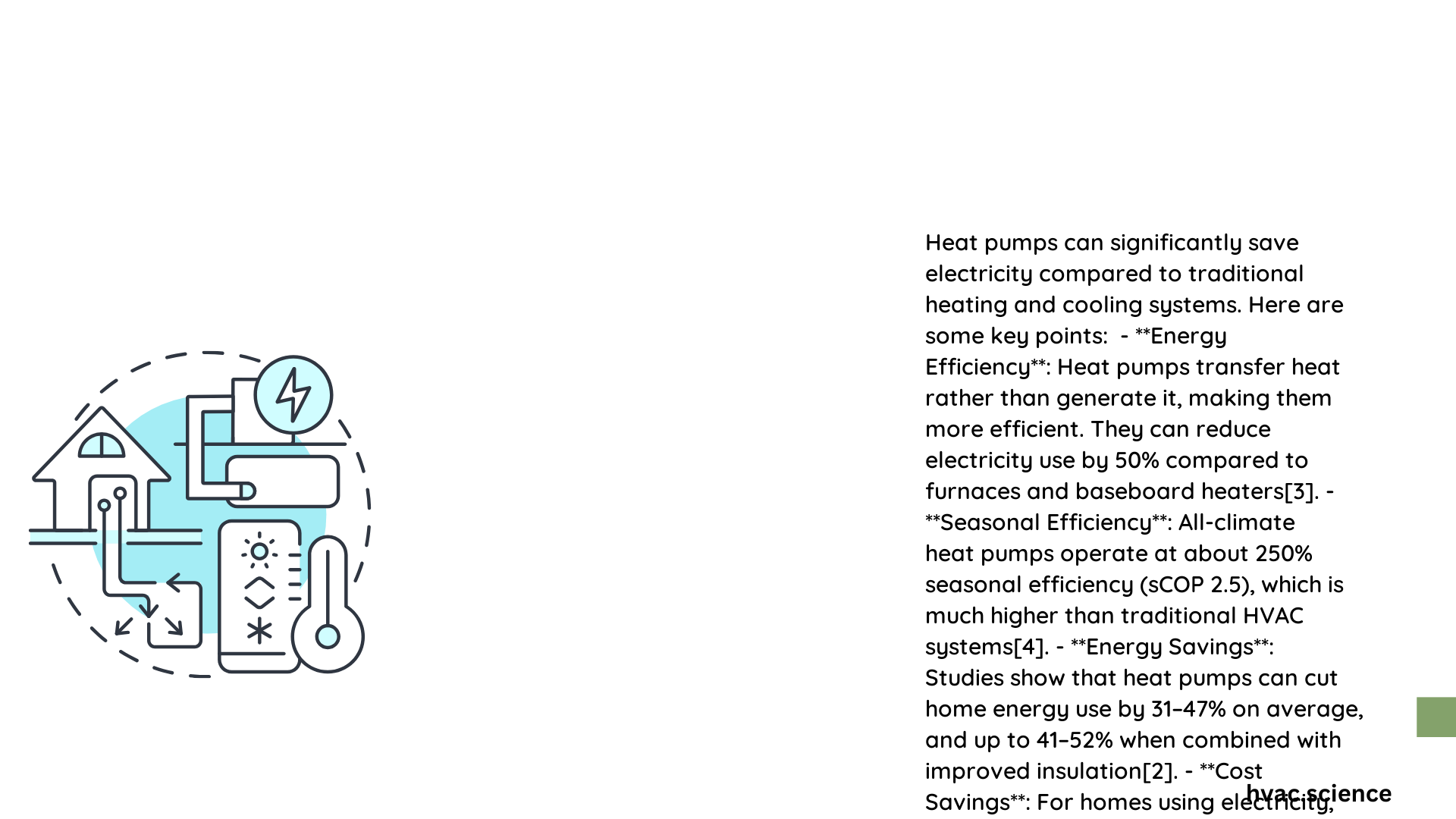Heat pumps represent a revolutionary technology in home energy management, offering homeowners a sophisticated solution to reduce electricity consumption. By transferring heat instead of generating it directly, these systems can dramatically lower energy expenses while maintaining comfortable indoor temperatures. Depending on the type and installation, heat pumps can cut electricity usage by 30-60%, making them an increasingly attractive alternative to traditional heating and cooling methods.
What Makes Heat Pumps Electricity-Saving Technology?
Heat pumps operate on a fundamentally different principle compared to conventional heating systems. Instead of generating heat through electrical resistance or combustion, they move existing heat from one location to another, which requires significantly less energy.
How Much Electricity Can Heat Pumps Actually Save?
| Heat Pump Type | Electricity Reduction | Average Annual Savings |
|---|---|---|
| Air-Source | 50% | $300 – $800 |
| Geothermal | 30-60% | $500 – $1,500 |
| Hybrid | 40-55% | $400 – $1,000 |
What Factors Influence Heat Pump Electricity Savings?
Several critical factors determine the electricity savings potential of heat pumps:
- Climate Conditions
- Moderate climates offer optimal heat pump performance
- Extreme temperatures can reduce efficiency
-
Proper insulation enhances overall system effectiveness
-
Installation Quality
- Professional installation ensures maximum efficiency
- Correct sizing prevents energy waste
-
Regular maintenance maintains peak performance
-
Home Characteristics
- Square footage
- Existing insulation
- Number of windows and doors
- Overall building envelope quality
Can Heat Pumps Provide Consistent Electricity Savings?
Heat pumps demonstrate remarkable consistency in electricity reduction across various scenarios:
- Residential Applications
- Consistent 30-50% electricity savings
- Lower operational costs compared to traditional HVAC systems
-
Reduced carbon footprint
-
Commercial Implementations
- Scalable energy efficiency
- Potential for significant long-term cost reductions
- Enhanced environmental sustainability
What Are the Economic Implications of Heat Pump Electricity Savings?
Initial Investment vs. Long-Term Savings
- Average Installation Costs
- Air-source heat pumps: $12,000 – $16,000
-
Geothermal heat pumps: $20,000 – $30,000
-
Potential Payback Period
- 5-10 years, depending on local energy rates
- Accelerated by available tax credits and rebates
Technical Efficiency Metrics
Heat pumps are evaluated using two primary efficiency measurements:
- Coefficient of Performance (COP)
- Measures heat energy generated per unit of electrical input
-
Efficient systems achieve COP ratings of 3-5
-
Seasonal Energy Efficiency Ratio (SEER)
- Indicates cooling efficiency
- Higher ratings represent better electricity utilization
Strategies to Maximize Heat Pump Electricity Savings
- Ensure proper home insulation
- Select appropriate heat pump for local climate
- Implement regular maintenance
- Utilize programmable thermostats
- Consider supplemental renewable energy sources
Conclusion

Heat pumps offer a compelling solution for electricity savings, combining technological innovation with environmental responsibility. By understanding their mechanics and implementing strategic approaches, homeowners can achieve substantial energy efficiency improvements.
